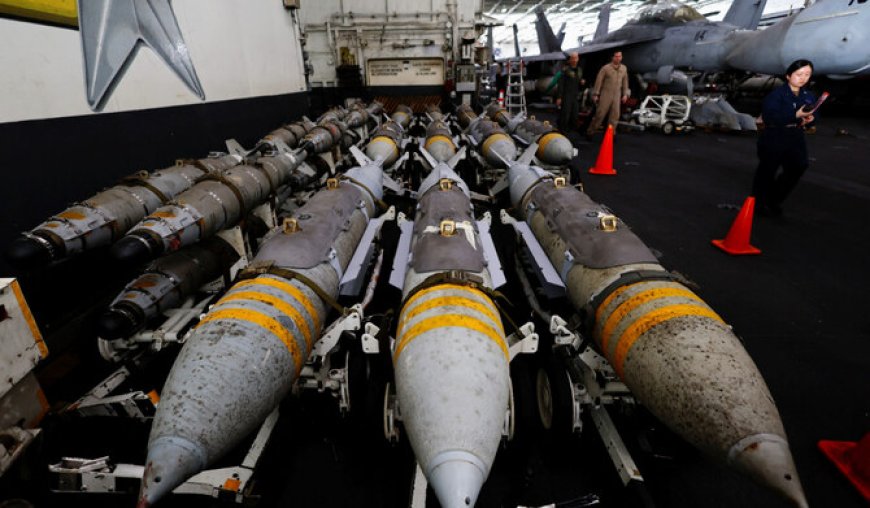The proposed $8 billion arms deal between the United States and Israel highlights a troubling dimension of Western foreign policy that prioritizes military engagement over meaningful conflict resolution. As reported by Axios, the Biden administration has informally notified Congress of this massive arms sale, which includes munitions for fighter jets, attack helicopters, artillery shells, and advanced warheads. These weapons are ostensibly meant to bolster Israel's defense capabilities against threats like drones and regional actors, yet the timing and scale of this deal invite sharp criticism, especially given the ongoing humanitarian crisis in Gaza.
According to the health ministry of the region governed by Hamas, Israel's military operations in Gaza have resulted in at least 45,658 deaths—mostly civilian—which clouds Washington's justification of the arms transfer. The UN has judged these death counts reliable, which begs difficult ethical issues regarding the nature of such accords. Does a dedication to Israel's "right to defend itself," as expressed by U.S. officials, overwhelm the accumulating proof of civilian suffering? Western leaders may refer to international humanitarian law, but by supporting governments accused of using excessive and indiscriminate violence, their actions usually compromise these values.
This agreement also reflects a larger trend of Western powers—especially the United States—entrenching their geopolitical ties by military backing at the expense of diplomatic channels. Negotiations to bring an end to the Israeli-Gaza conflict have failed for more than fifteen months. The flood of modern weaponry into the area runs the danger of prolonging a cycle of bloodshed instead of tackling its underlying causes. Critics contend that whilst professing to support peace and human rights, the United States fuels an arms race in the Middle East, therefore aggravating strife.
Contextually, the suggested sale falls during a turning point in American politics. Set to leave office on January 20, President Joe Biden seems eager to confirm that his government will always back Israel before the handover to Donald Trump. This consistency in bipartisan support of Israeli militarism emphasizes how firmly rooted the U.S.-Israel partnership is, independent of changing political environment. But it also alienates viewers all around who see such actions as Western apathy toward the suffering of Palestinian people.
Furthermore, this arms agreement fits Western strategies that selectively support human rights while neglecting violations carried out by vital partners. The Biden government's justification of opposing aggression from Iran and its allies ignores the wider effects of militarizing more broadly. By arming Israel with modern weapons, for example, the U.S. runs the danger of aggravating regional tensions and maybe involving other countries into the conflict, so compromising any chances for long-term stability.
Critics often stress the financial ramifications of such agreements. Although American citizens pay for large-scale international military aid projects, the humanitarian consequences—shown in pictures of devastated communities and bereaved families in Gaza—undermines the moral authority the West often claims on the world scene. This gap between words and deeds promotes anti-Western sentiment and anger, therefore hampering initiatives to create real alliances in the area.
In a society struggling with interlocking crises—from global inequality to climate change—giving weaponry first priority over humanitarian relief and conflict resolution sends a disturbing signal. It captures a Western political posture that gives strategic superiority first priority over moral leadership. Western governments should rethink their actions as the Gaza battle continues on and civilian lives count. Real security comes from resolving the fundamental inequalities that support violence and instability rather than from constant armaments sales.














































